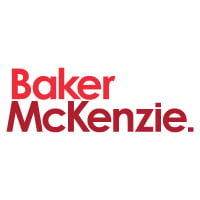

Legal manager | Valorem



Carolina Botero Kling
Legal manager | Valorem
How do you approach managing legal aspects during periods of instability or crises, and how does your legal strategy align with the broader business strategy to ensure the organisation’s resilience?
Our approach to managing legal aspects during instability or crises centers on maintaining a flexible legal framework that aligns with our broader business strategy and ensures organisational resilience. Key aspects include Adaptive Legal Structures (we design modular, easily adjustable legal frameworks to swiftly respond to changing business needs), Scenario-Based Planning (we develop legal strategies for various potential scenarios, enabling quick responses to sudden changes), Principle-Based Guidance (we establish flexible legal principles rather than rigid rules, allowing consistent yet adaptable application), Rapid Response Mechanisms (We implement systems for quick legal reviews and approvals to support timely business decisions) and Continuous Updates (We regularly review and update our legal frameworks to remain compliant and relevant).
This flexible approach allows us to support strategic business goals during changes or crises, enabling innovation and quick pivots in response to market shifts. It facilitates efficient scaling of legal support as needed, providing a competitive advantage through legal agility. Furthermore, it optimises resource use, aligning seamlessly with our cost management strategies. By maintaining this adaptable legal framework, we enhance our organisation’s ability to navigate uncertainties while remaining compliant and strategically focused.
What are the main cases or transactions you have been involved in recently?
Recently, our legal team has been involved in several significant cases and transactions. We have created new legal entities aimed at optimising our tax structure and realising better tax benefits across our operations. For a major project, we successfully negotiated and executed over 2,000 agreements, demonstrating our ability to handle high-volume, complex legal work efficiently. We have acquired full ownership in several companies where there were previously minority shareholders, streamlining our corporate structure and decision-making processes. We have conducted multiple corporate mergers and spin-offs, strategically reorganising our business units to enhance operational efficiency and focus.
What emerging technologies do you see as having the most significant impact on the legal profession in the near future, and how do you stay updated on these developments?
Artificial intelligence (AI) and legal design are the emerging technologies we see having the most significant impact on the legal profession in the near future. Recognising their importance, our team has proactively engaged with these technologies. We have completed courses on legal design, enhancing our ability to present complex legal information in more accessible and user-friendly formats.
Furthermore, we are actively exploring how to integrate AI throughout corporate processes. Our goal is to leverage AI to streamline operations, improve efficiency, and enhance decision-making capabilities. However, we always prioritise information security in this digital transformation. We are meticulously evaluating AI solutions that not only boost our productivity but also maintain the highest standards of data protection and confidentiality.
To stay updated on these developments, we regularly participate in industry conferences, collaborate with legal tech providers, and engage in continuous learning initiatives. This proactive approach ensures we remain at the forefront of technological advancements in the legal field, allowing us to provide more efficient and effective legal services while safeguarding sensitive information.